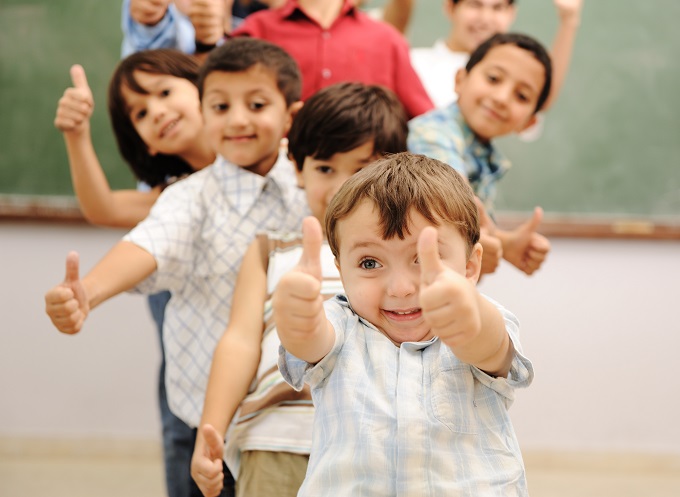
© Jasmin Merdan, Adobe Stock
<h3>School leaders, teachers and communities have a new best evidence feature that explains the ‘how’ of building productive partnerships to drive change and excellent outcomes for ākonga in English medium education.</h3>
<figure id="attachment_18311" aria-describedby="caption-attachment-18311" style="width: 300px" class="wp-caption alignleft"><img class="size-medium wp-image-18311" src="https://www.schoolnews.co.nz/wp-content/uploads/2021/02/Prof-Mere-Berryman-300x230.jpg" alt="" width="300" height="230" /><figcaption id="caption-attachment-18311" class="wp-caption-text">Professor Mere Berryman</figcaption></figure>
<p>Released this week by the Ministry of Education, Rongohia te Hau Learning from Māori Expertise comes off the back of calls that progress towards a culturally responsive education for Māori in education has been too slow or not delivered.</p>
<p>The new best evidence feature identifies critical success factors that enable transformative change across academic achievement, wellbeing and sense of belonging.</p>
<p>The feature highlights evidence about the need for system change; includes evidence of what does and does not work when evaluated by effects on Māori ākonga; and illustrates perspectives of ākonga: ‘It’s like the opposite of racism in this school’ and ‘Ko tātou ngā rangatira āpōpō’.</p>
<p>The Rongohia te Hau includes a presentation by Director of Poutama Pounamu, Professor Mere Berryman and a message to educators about taking a Tiriti o Waitangi partnership approach to transformative education that benefits Māori and non-Māori.</p>
<p>It brings the evidence to life through seven videos in the online feature that explain the early learning journey of Te Kāhui Ako o Te Puke and Bethlehem College Chapman working with Poutama Pounamu experts to use Rongohia te Hau.</p>
<ul>
<li>Using learner, whānau and teacher feedback</li>
<li>Different perspectives inform action</li>
<li>Co-constructing a continuum of effective teaching practice</li>
<li>Collecting evidence of pedagogy</li>
<li>The learning is in the conversation</li>
<li>Impacting Māori success</li>
<li>Racism: Taking those blinkers off</li>
</ul>
<p>Three school principals who have won the Prime Minister’s Educational <a class="wpil_keyword_link" href="https://www.schoolnews.co.nz/2015/11/pm-s-excellence-awards-open-for-2016/" title="Excellence Awards" data-wpil-keyword-link="linked" target="_blank">Excellence Awards</a> also appear in the videos to explain the changes. The feature provides Find out more sections that include references to the underpinning evidence.</p>
<p>The new best evidence feature can now be accessed at <a href="https://www.educationcounts.govt.nz/topics/BES/rongohia-te-hau-effective-support-for-culturally-responsive-teaching" target="_blank">https://www.educationcounts.govt.nz/topics/BES/rongohia-te-hau-effective-support-for-culturally-responsive-teaching</a></p>

EXCLUSIVE: Teachers used to be paid two to three times more than minimum wage workers,…
After an “overwhelming” vote to reject the latest Government offer, secondary school teachers will begin…
Second-language learning should be compulsory, says a new report from a forum bringing together academics,…
A new entitlement aimed to improve access to learning support coordinators for schools with students…
Educators have raised questions about the Ministry of Education’s new secondary school subjects, set to…
Professional learning and development (PLD) for teachers needs to be higher impact for teachers and…
This website uses cookies.